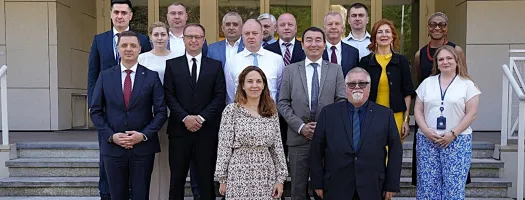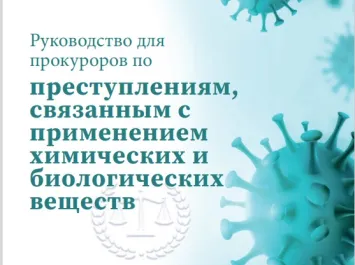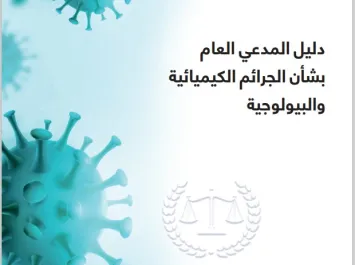In 2024, an ambitious new initiative titled “From CBRN Crime Scene to Courtroom” emerged as a critical milestone in the global effort to address Chemical, Biological, Radiological, and Nuclear (CBRN) threats. Spearheaded under the European Union CBRN Risk Mitigation Centres of Excellence (EU CBRN CoE) and fully funded by the European Commission’s Service for Foreign Policy Instruments (FPI), this pilot project is setting a new standard in CBRN forensics and legal capacity-building.
At its core, the initiative focuses on bridging the operational gap between field investigation and judicial prosecution of CBRN-related incidents. By simulating real-world scenarios through a structured six-month training programme, the project empowers law enforcement, forensic specialists, and legal professionals to handle CBRN threats with coordinated precision and legal rigor.
The training package consists of five interlinked modules, each designed to build practical and legal competencies:
1. Tabletop Exercise – Offers strategic insight into CBRN threats, emphasising inter-agency coordination and identifying operational gaps.
2. CBRN Criminalisation Workshop – Explores international legal frameworks, laying the groundwork for effective prosecution of CBRN crimes.
3. Building a Case for Prosecution – Guides participants through how to transform forensic data into actionable legal cases.
4. Mock Trial / Moot Court – Puts theory into practice in a simulated courtroom environment using adapted versions of national laws.
5. Train-the-Trainer (TTT) – Ensures continuity by training national instructors to carry the programme forward within their institutions.
Sustainability has been embedded in the programme from its inception. By involving institutions like the National Institute of Justice, the Police Academy, CBRN forensic units, and national security training centers, the project ensures that the expertise acquired becomes a lasting asset. Over 50 tailored training modules are expected to be institutionalized, fostering a resilient knowledge ecosystem within Moldova’s justice and security sectors.
Moldova served as the pilot country for the project, successfully hosting all five training components in a national format. A highlight of the pilot was the Train-the-Trainer module, which equipped 10 Moldovan instructors to integrate the training materials into the national curriculum. A concluding three-day course provided practical experience before formally transferring the package to designated national training institutions.
The TTT course was conducted at the headquarters of UNICRI in Turin, Italy from 18 to 20 June 2025. It combined two days of theoretical instruction with one day of hands-on delivery. Ten training instructors from the Republic of Moldova were trained and certified during this capacity-building event. Topics included: adult learning principles; instructor roles and methodologies; training implementation at the national level; use of presentation tools and body language; and experiential learning strategies. This approach not only prepared instructors to deliver the content but also empowered them to adapt and expand it to meet future training demands.
The next phase will focus on delivering tailored training sessions to regional officials in prosecution, investigation, and the judiciary. Nine specialized courses have been designed, each lasting at least one day, and are scheduled for delivery between 2025 and 2027. These sessions are expected to train approximately 300 professionals across law enforcement and judicial sectors, reinforcing the legal and forensic architecture needed to combat CBRN threats effectively.
“From CBRN Crime Scene to Courtroom” is more than a training programme: it’s a blueprint for a sustainable, expert-driven response systems in the face of complex threats. By integrating forensic science with legal processes and empowering local institutions, the EU and its partners is helping to build a safer, more resilient global community prepared to face the challenges of tomorrow.



